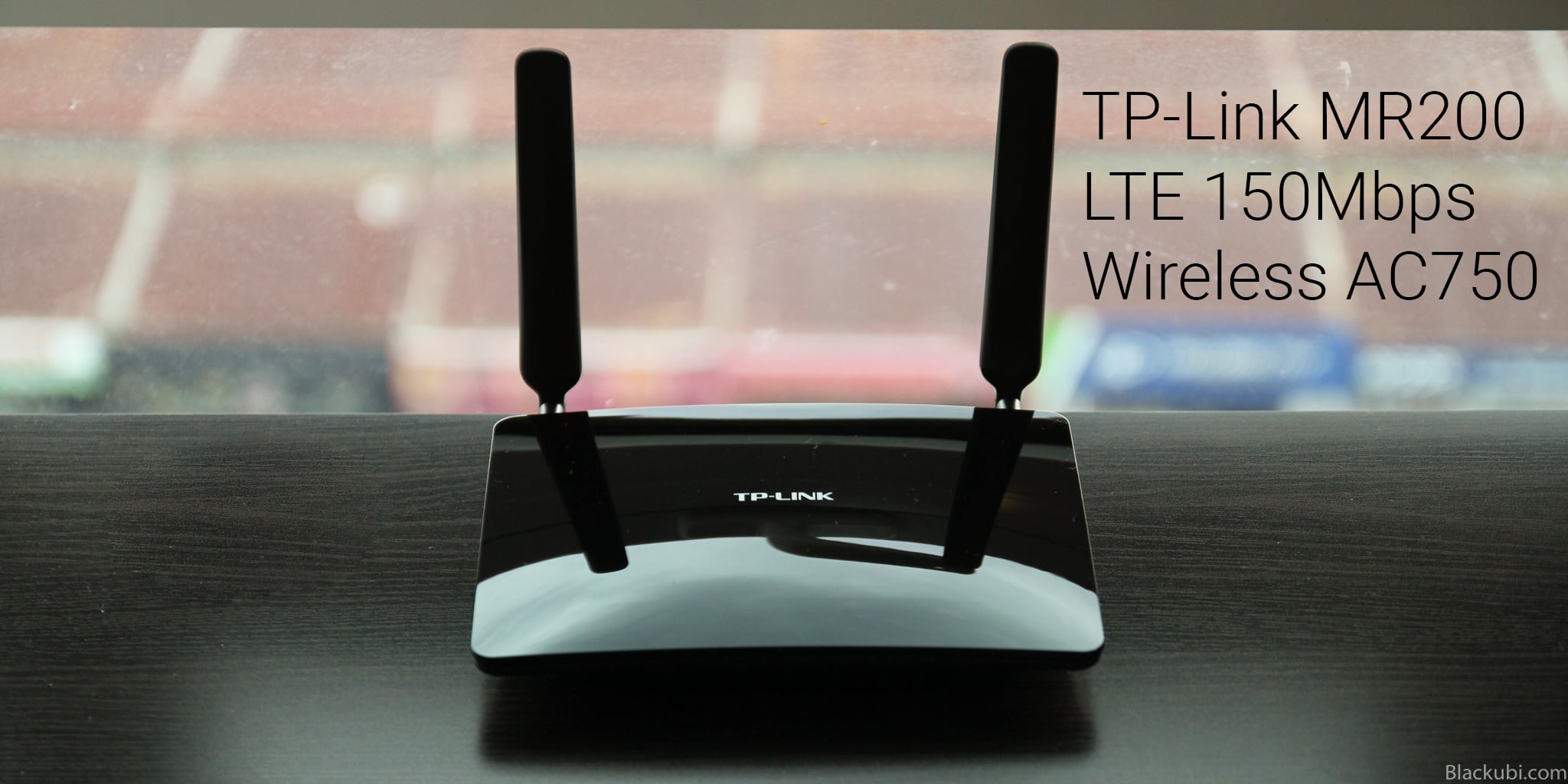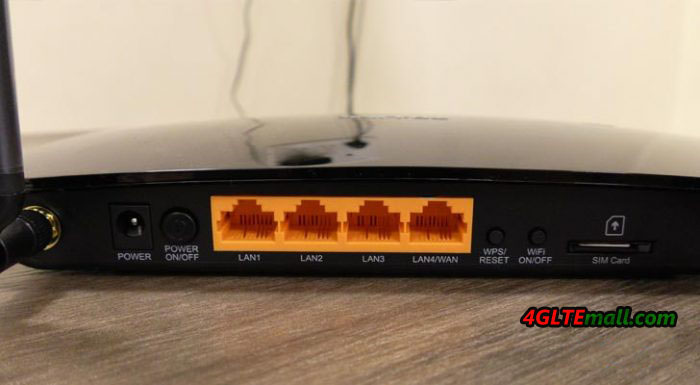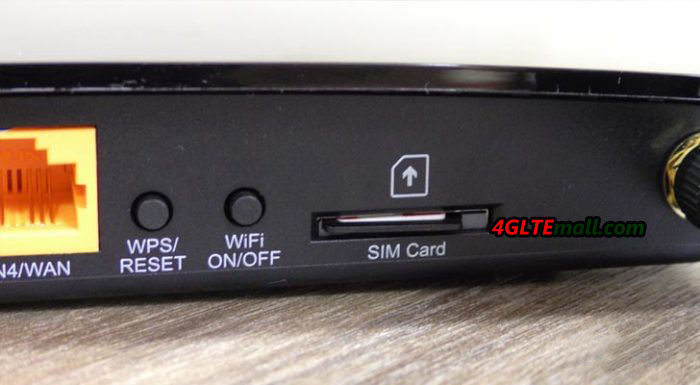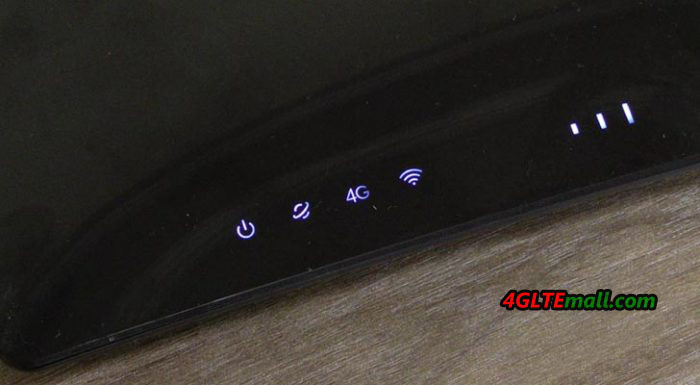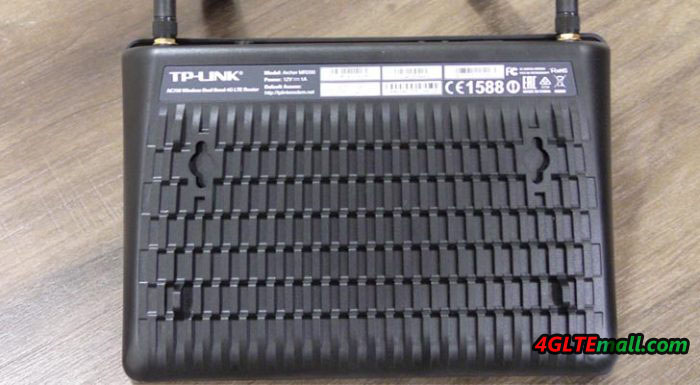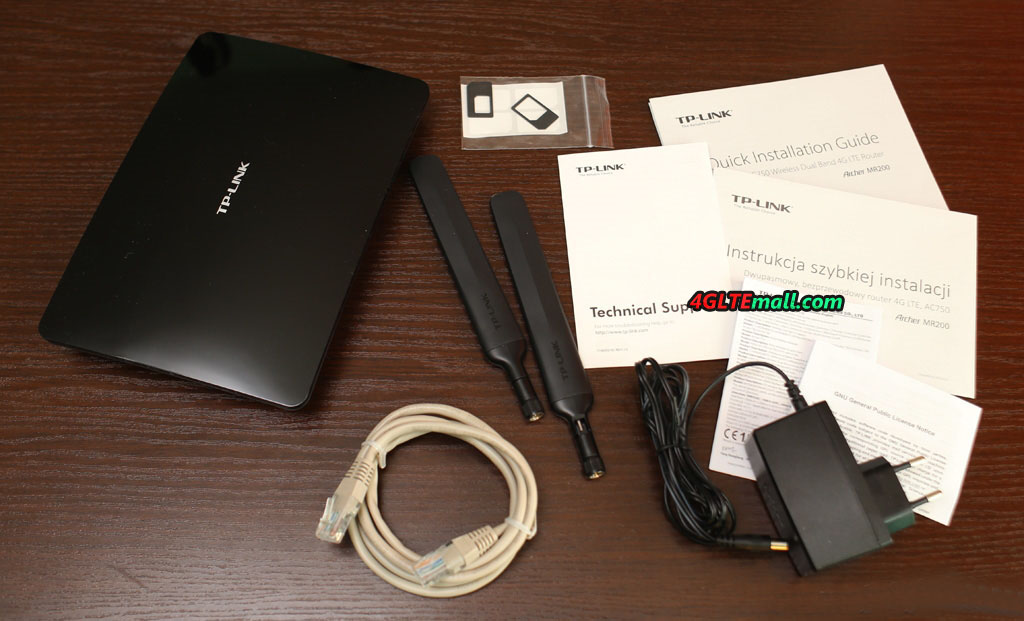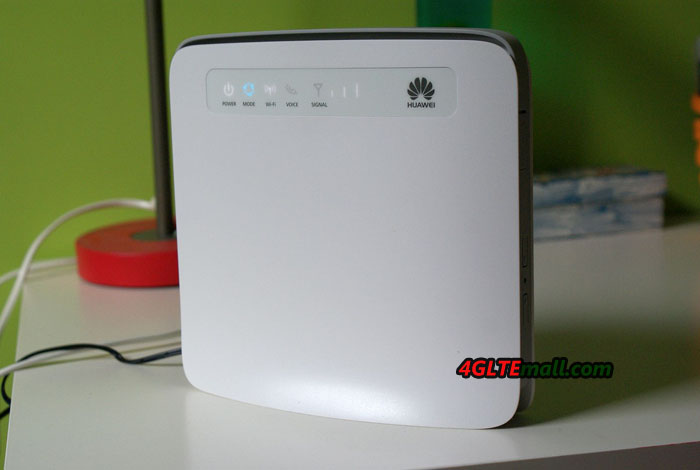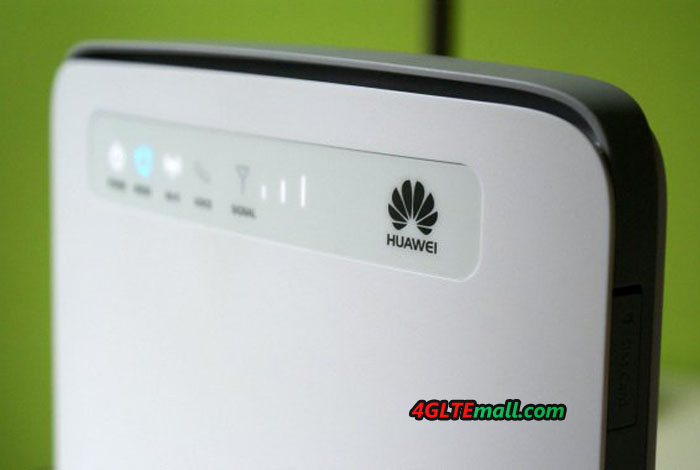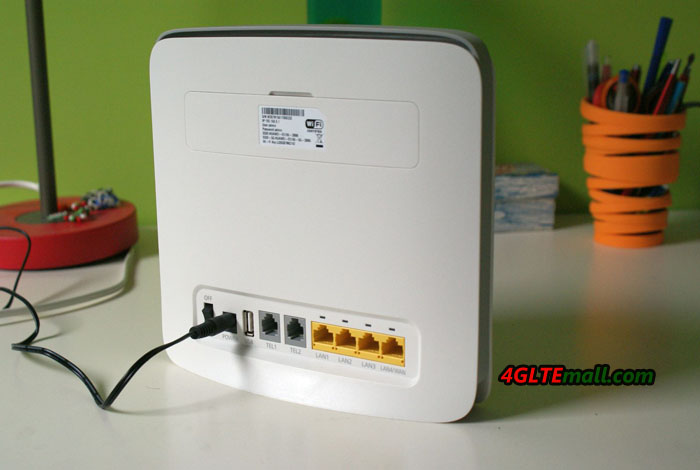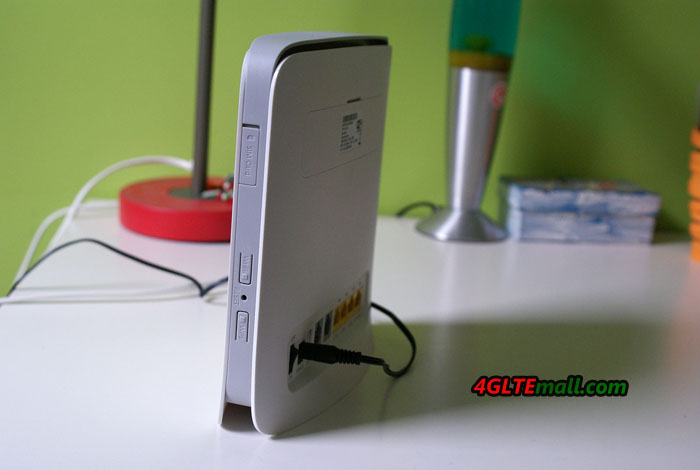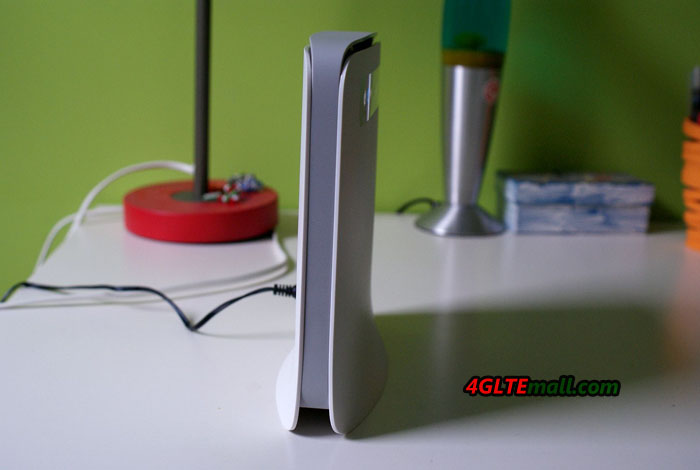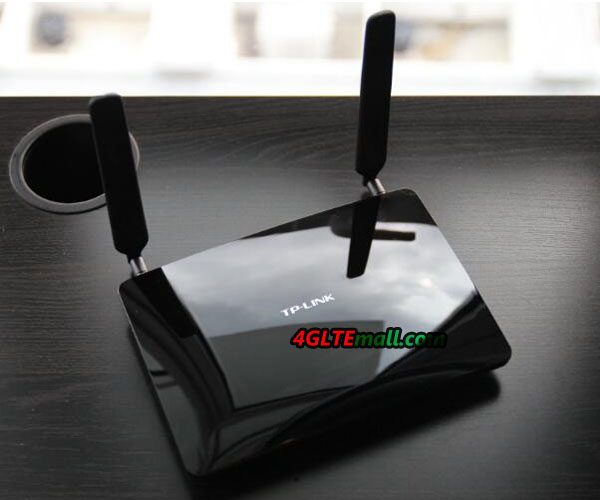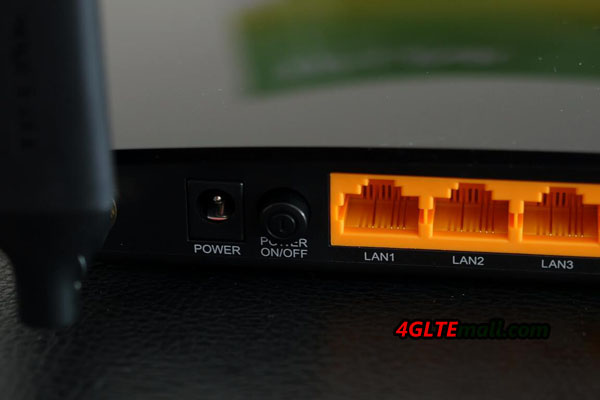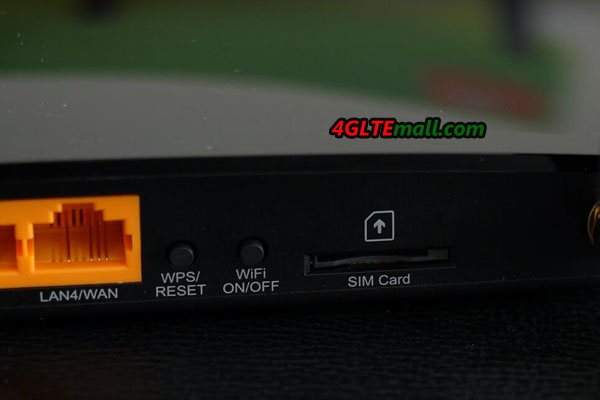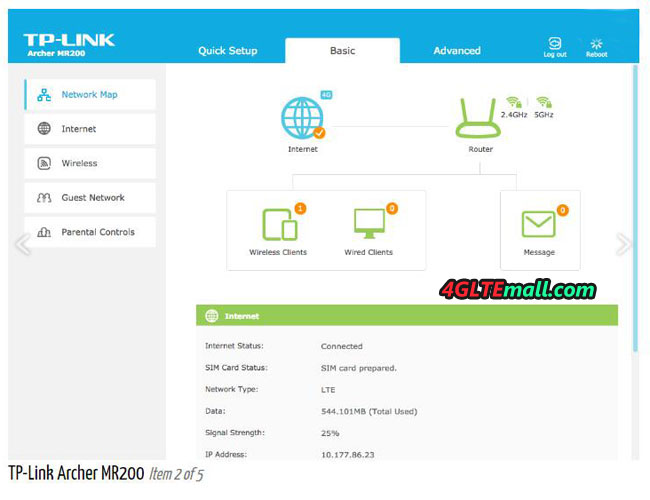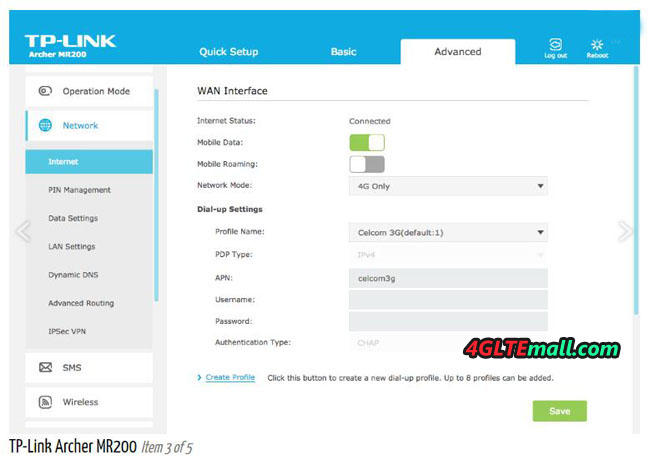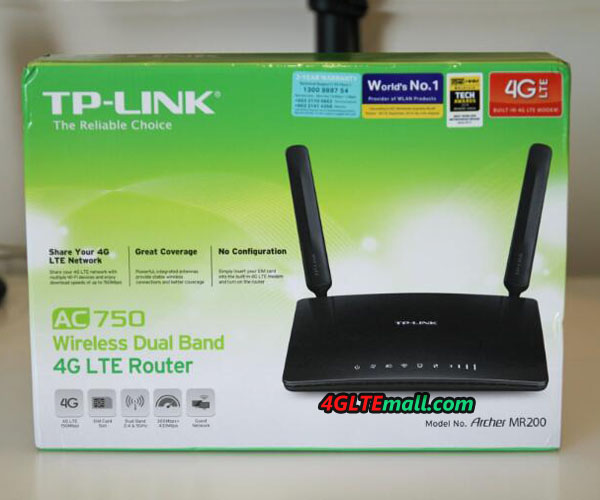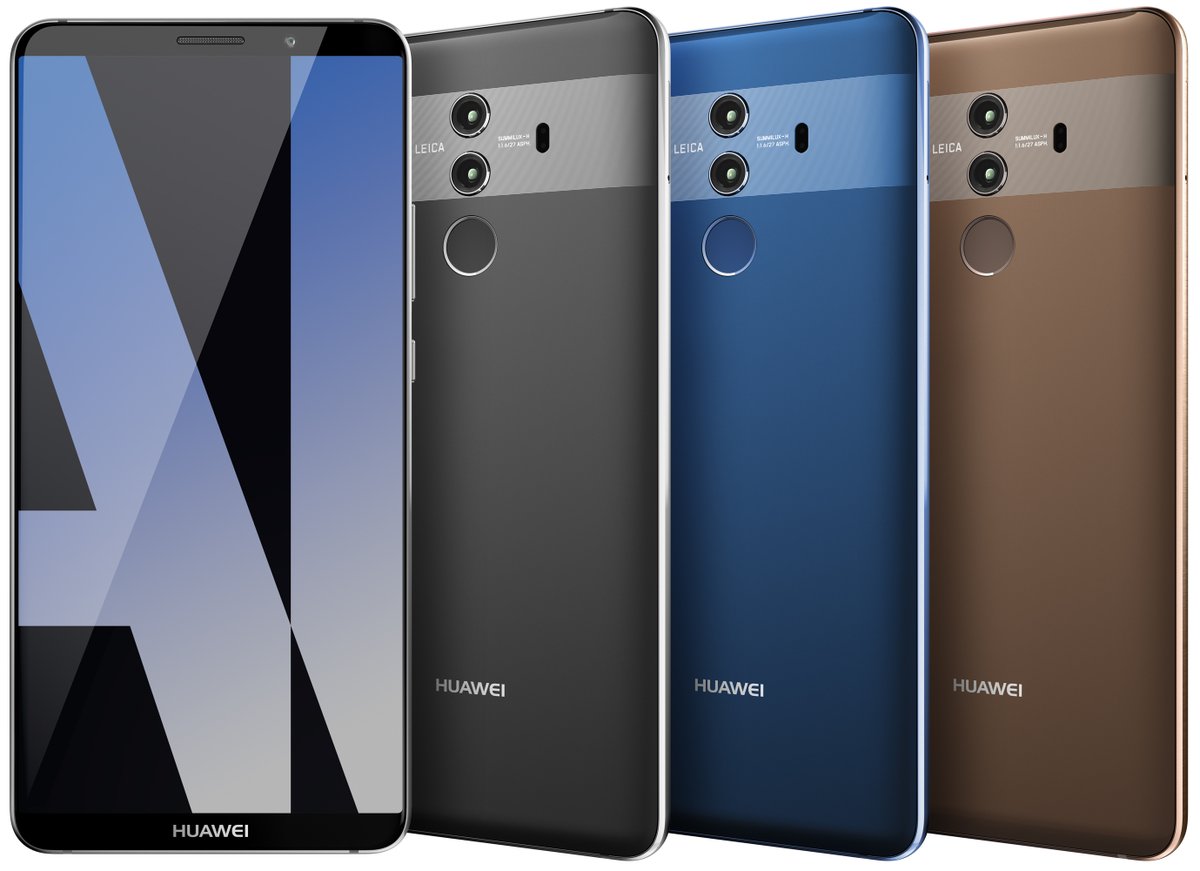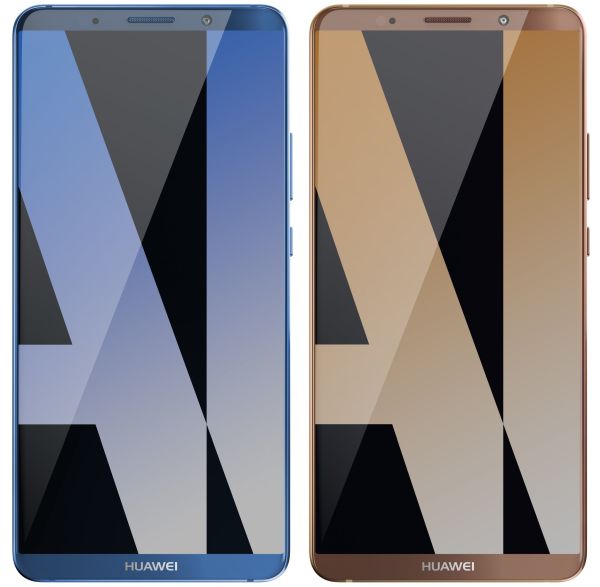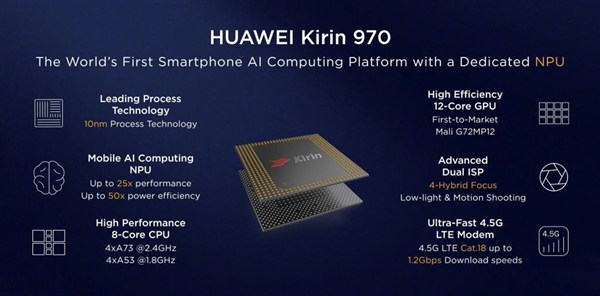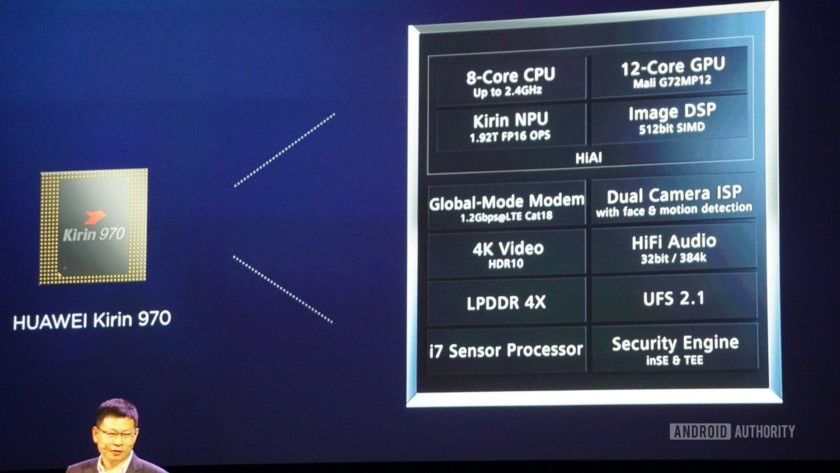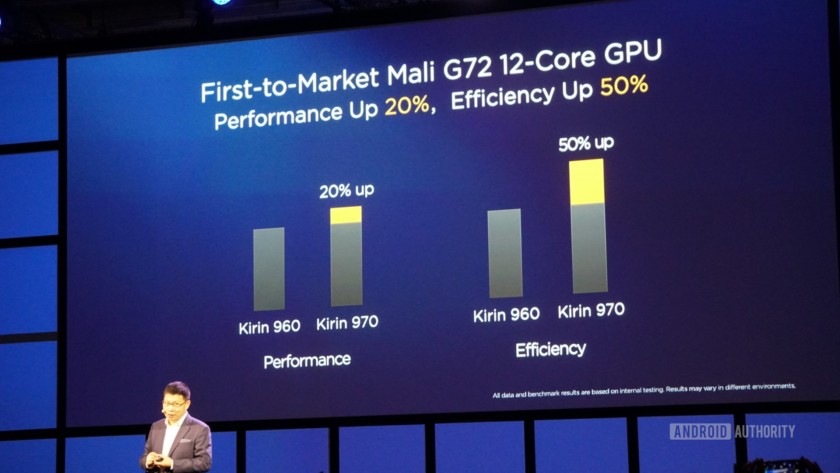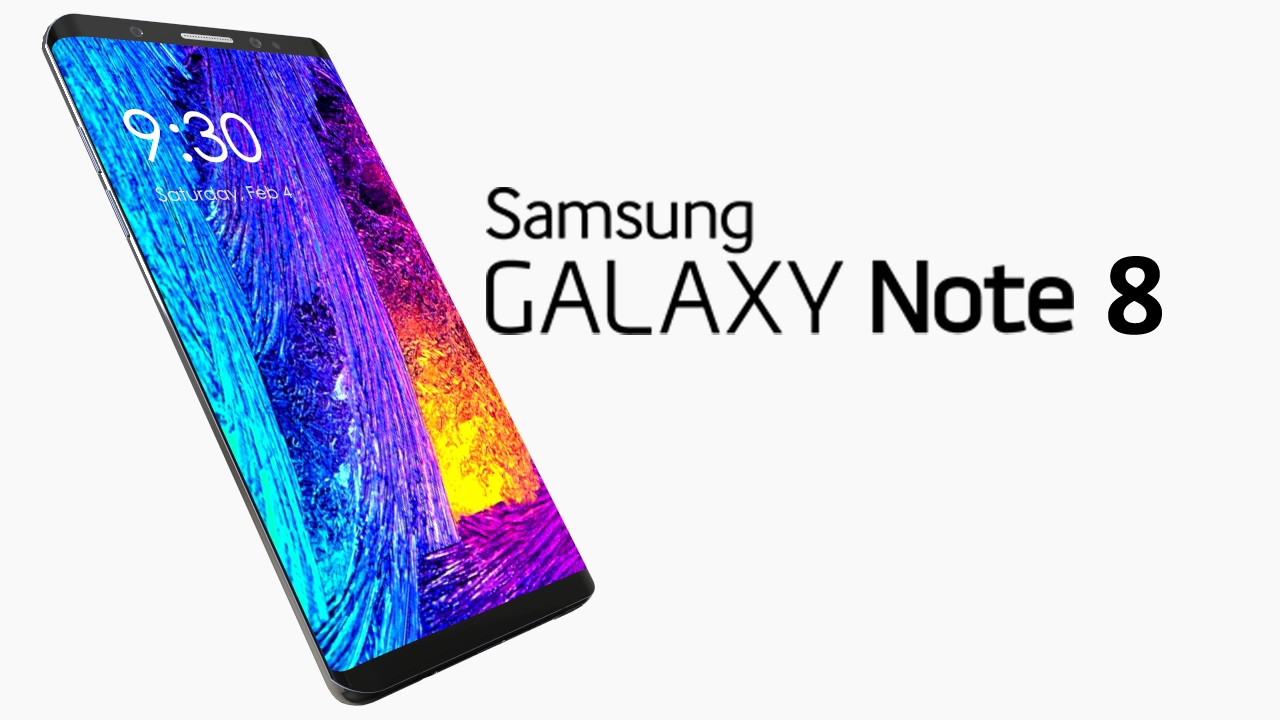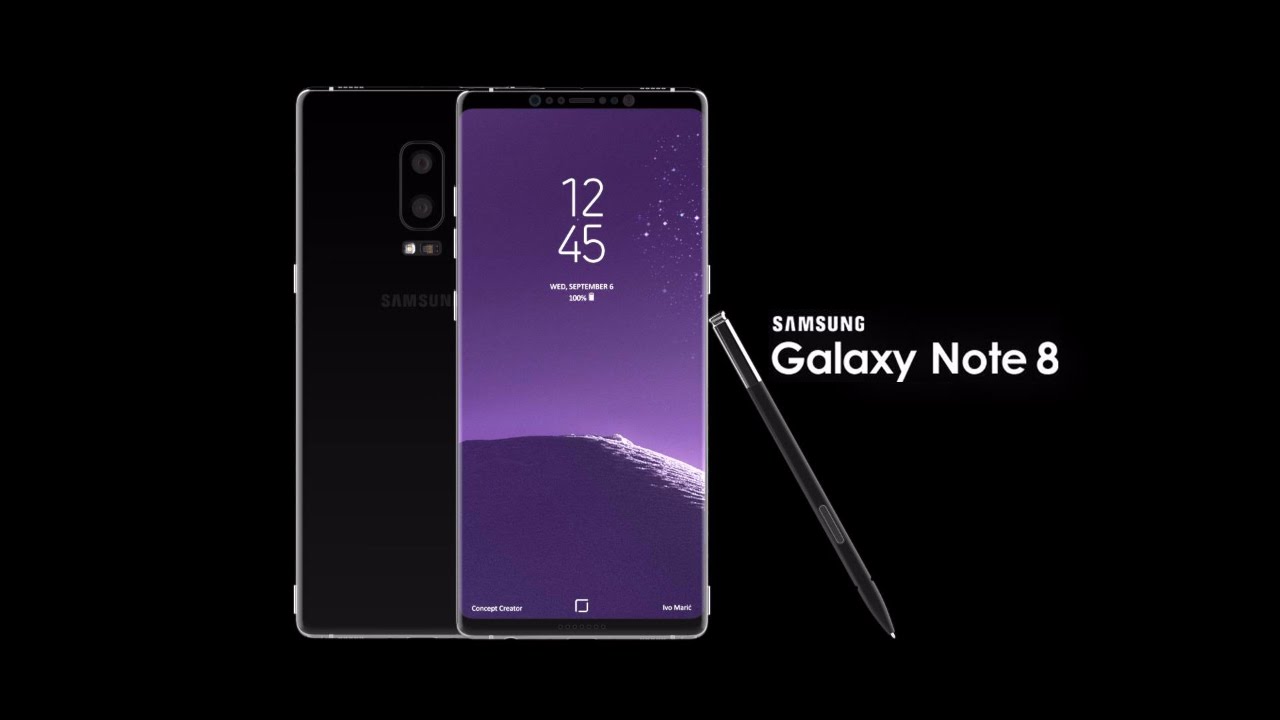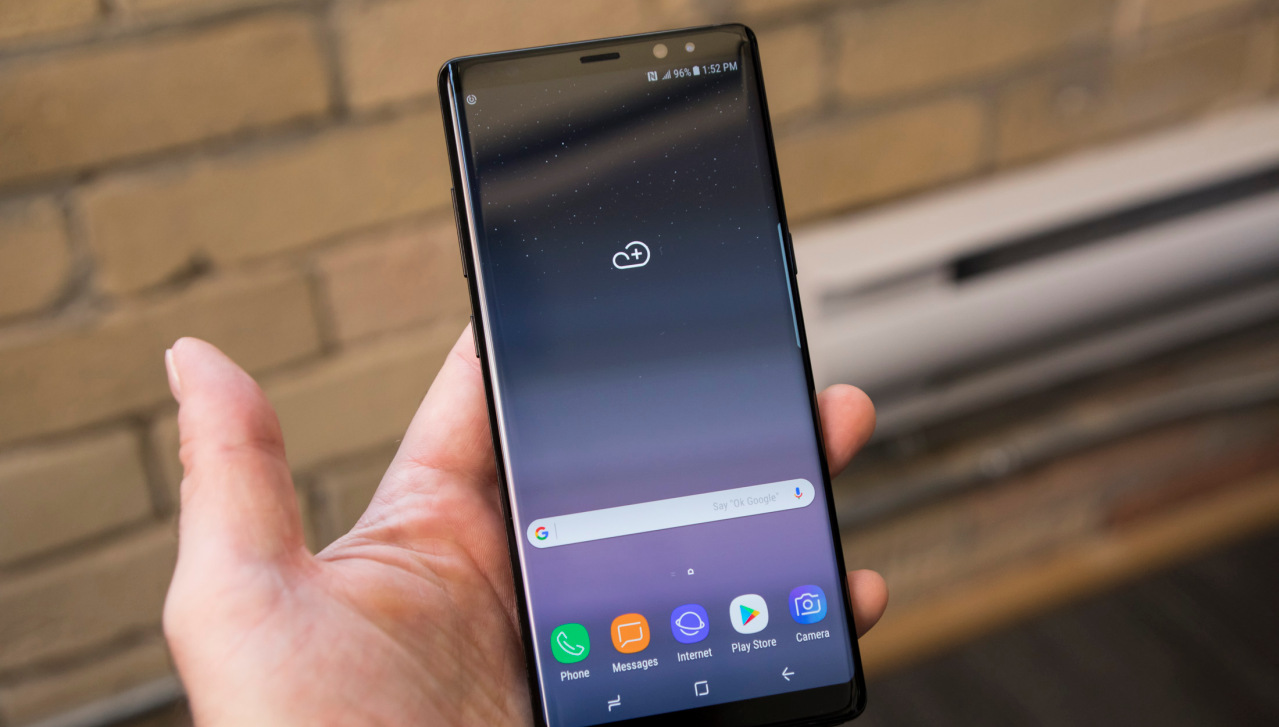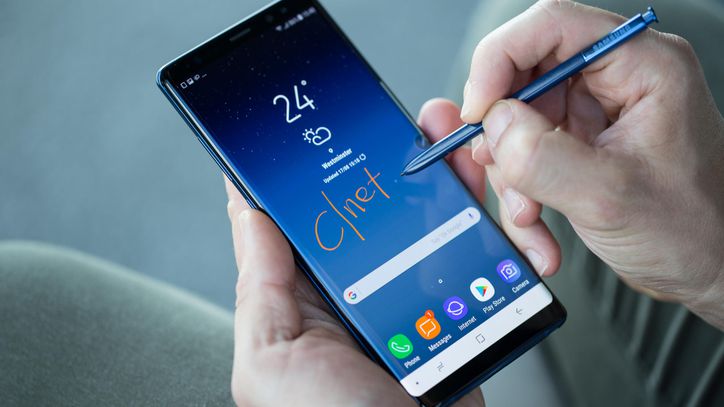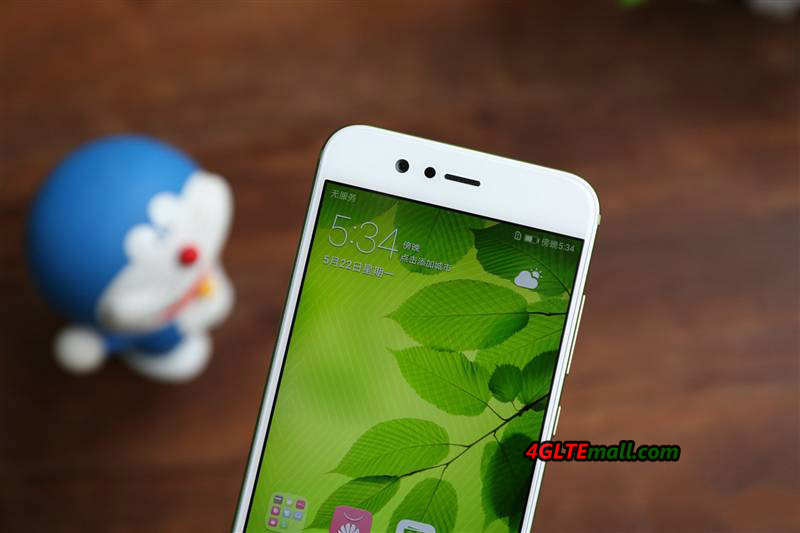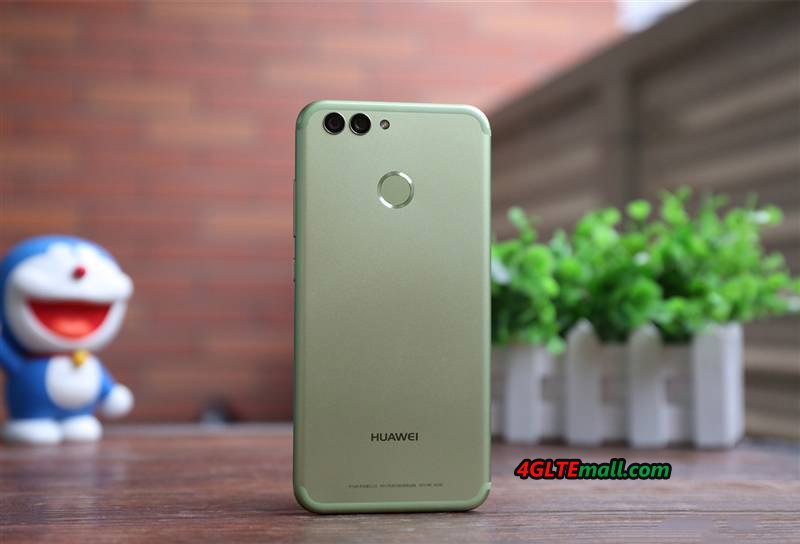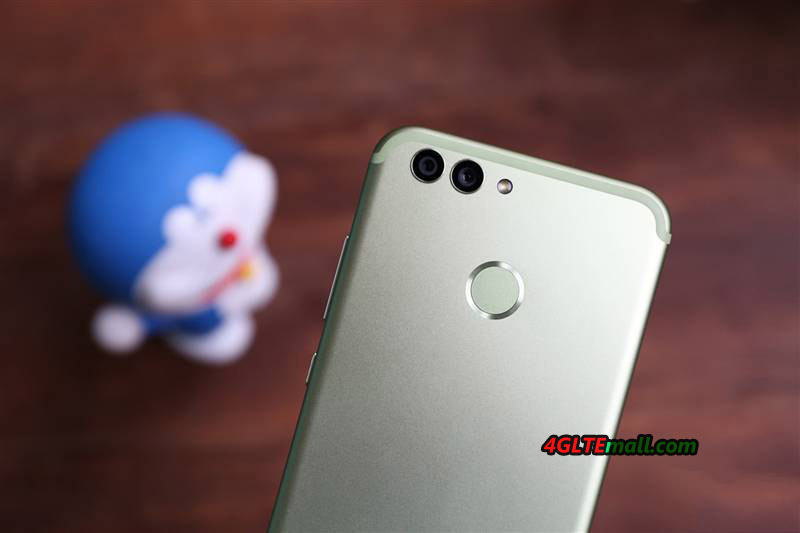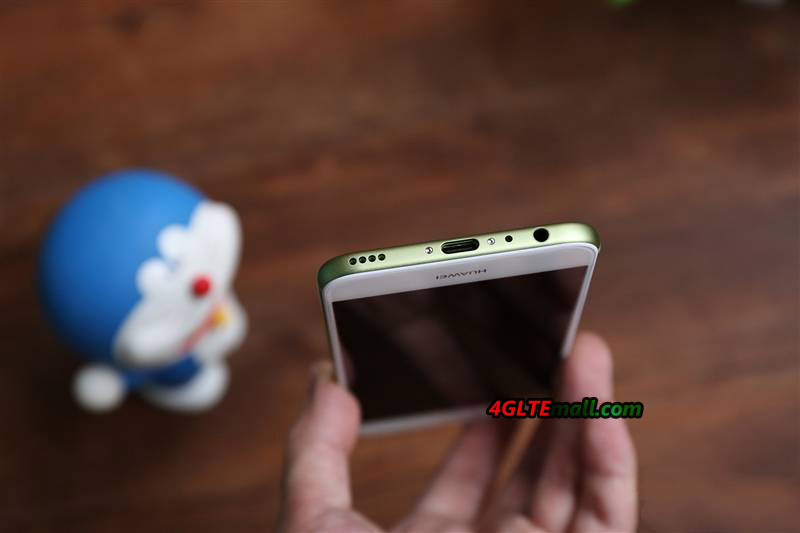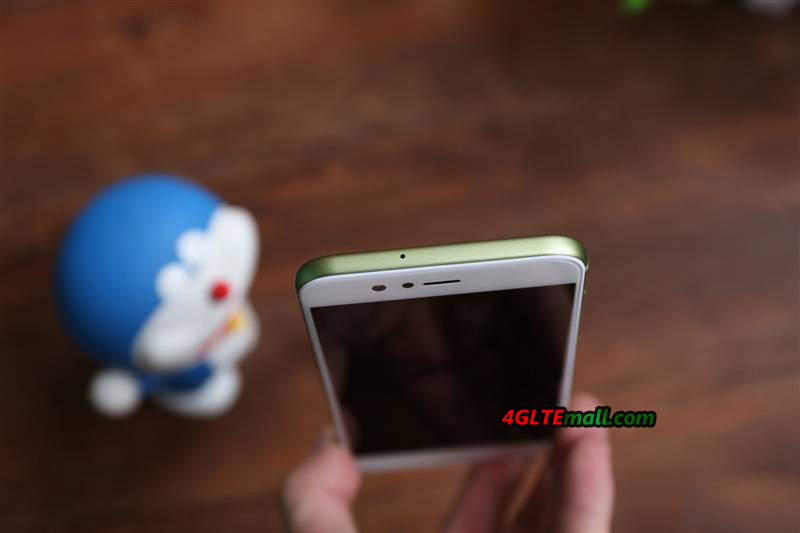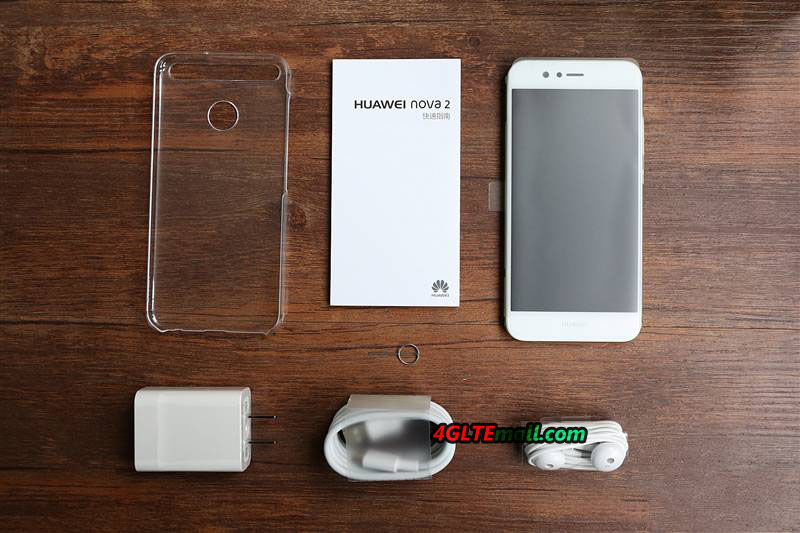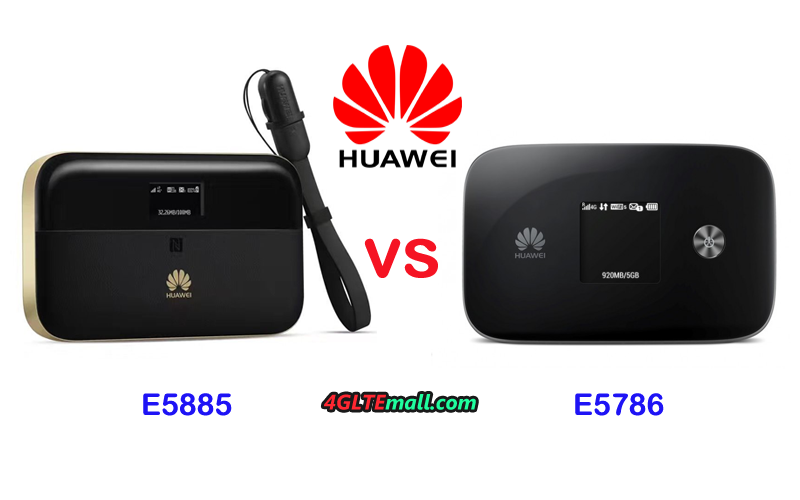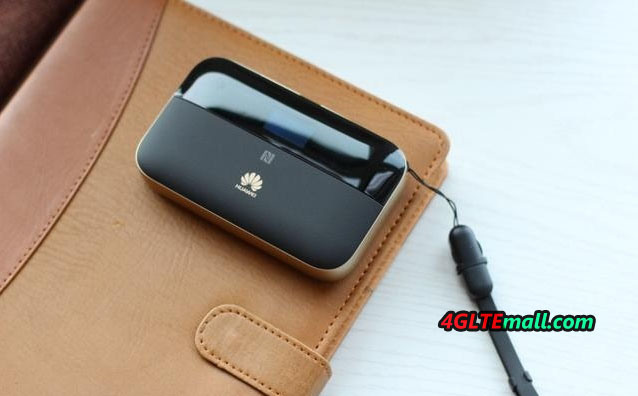4G LTE Mall(https://www.4gltemall.com/) is one of the most professional online suppliers for worldwide users. We had supplied branded or unbranded & unlocked 4G USB Dongles/Surfsticks, 4G Gateway/Routers, 4G Mobile Hotspot/Portable 4G WiFi Router, 4G Smartphones, LTE Modules and 4G LTE Indoor & Outdoor Antennas etc..
Wednesday, October 25, 2017
Netgear Aircard 800S /Unlocked Optus 4G Wi-Fi Modem (Cat.9) AC800S
Test of TP-Link Archer MR200 4G Router
The TP-Link Archer MR200 Router is a feature-rich router built to maximize performance in your mobile broadband. We had a simple test to show more about TP-link MR200 router.
TP-Link Archer MR200 is a desktop 4G router. Unlike the Netgear AirCard 810 Mobile Hotspot we tested recently, Archer MR200 is not a router you can take to town (unless you know you'll be near an electrical outlet). It is relatively large and clumsy and has no rechargeable battery. Instead, it is supposed to be used indoor where the router can get continuous power supply and then the broadband connection would be done quickly and easily.
It is also there, in a poor reception reception, the TP-Link Archer MR200 is supposed to show its strength, as it is equipped with a pair of solid external antennas to enhance the 4g reception.
User-friendly and feature-rich
Getting Started with TP-Link the Archer MR200 is really friendly. Just plug in with the 4G SIM card, turn on the router, enter the preset password that is written on the bottom of the router and start surfing. When it is time to configure the 4g LTE router, this appears to be as easy and smooth as the installation itself. The interface is exemplary quickly, easily and clearly, even when we enter the more advanced settings.
Despite its rather simple exterior, the TP-Link Archer MR200 proves to be a truly functional and configurable router. Here it is in the top layer compared with competitors in the market.
Reception Good
Initially, the TP-Link Archer MR200 manages well in our performance tests. Reception is normal under normal conditions. The connection is always stable during the time we tested it. The WiFi results are slightly better. Here, the TP-Link Archer MR200 puts itself in the top level. The same good results goes for range tests, the TP-Link Archer MR200 gets good values and performed better than most of tested routers.
But when we come to what will be the strength of TP-Link Archer MR200, the reception under difficult conditions, we will be a little bit disappointed. Instead of getting to the top, the TP-Link Archer MR200 turns out to be worse than the average. In fact, the TP-Link Archer MR200 is far below the newly tested mobile router Netgear AirCard 810. If you are located at somewhere with bad signal, you’d better choose a wireless router with connectors for external outdoor LTE antenna, which may help the router to get better 4G/LTE network, so you will enjoy the fastest possible network.
Conclusion
TP-Link Archer MR200 is not a bad router, but does not do all as what we expect from a powerful 4G router. When the router work in good network condition, it performs good, but if in bad condition areas, it has much space to improve to shorten the distance to its competitors. There are many similar 4G routers on the market that are more affordable than this one such as Huawei E5186, ZTE MF286 etc. At last, we have a look at the basic features of TP-link Archer Mr200:
Features of TP-Link Archer MR200
Manufacturer: TP-Link
Function : 4G router with ac-wifi
System Requirements: 2G/3G/4G LTE Mobile Broadband.
Wi-Fi: 802.11ac/b/g/n, Dual band 2.4/5 GHz.
Security: Wep, WPA, WPA2
Network Ports : 3 pcs, 1 pc wan/lan.
Connections: Charging connector, external antennas.
Screen: 2.4 inch color touch screen.
Size: 20.2 x 14.1 x 3.4 cm.
Other: 3 internal wifi antennas, 2 external 4g antennas.
Sunday, October 22, 2017
Huawei E5186s-22a 4G LTE Router for Home Use
Whether you had read our blog post, reports from some webistes, or other news, but you've surely noticed the incredible progress which has been made in mobile technology. Not long ago, 3G was the peak of the peaks, compared to 4G networks now, 5G is on the road to dominate.
Huawei E5186s-22a 4G LTE wireless router has been available in many countries for long time. As a pure 4G LTE router, it may not be cool like Netgear Nighthawk series router, but it do good job as expected for a 4G router. In terms of Huawei CPE's goals, it is no different from the similar wireless terminals used at home. Its job is to share the internet between different devices, supplementing them with a few extra amenities. Huawei E5186s-22a has more than usual gadgets that can accommodate a SIM card.
The E5186 router itself has a sleek design, much more beautiful than the predecessor 3G routers such as Huawei B683 and B970b Router. At the front, you can find a few white and mainly blue LEDs, including the power, mode, WiFi, Voice and signal indicators. The indicators tell users the current working status of the router.
The start-up goes exactly like a common device. Under power button, insert a SIM card, find your Huawei WiFi with your computer, enter the WiFi key on the sticker on the back of the gadget, open a browser window and enter 192.168.8.1. Here is an interface that will make you ready to complete all the security, administration, and other settings that people have on a router.
And that's all we are and the internet connection would automatically be done. Of course, no matter what location you use, there is exactly the kind of network coverage or other environmental factors (walls, mountains, etc). The most important is that Huawei CPE E5186s-22a also supports the most advanced Cat6 LTE networks.
So far, I was pretty happy with my home provider and after running a speed test, it turned out that the download speed is far from the official saying about download speed of 300mbps. And the uploading can be done (33.57 Mbps / 16.20 Mbps / 20 ms ping), which is not quite exciting.
Actually, there is an alternative to provide better solutions to get a higher level LTE router such as Huawei B618S-22d. However, when ordering a new net, it is worth thinking if we are not going to do better with the 4G. Perhaps it’s not the problem of the Huawei E5186 CPE, what if the problem comes from the network environment fators?
Anyhow, the Huawei E5186s-22a could meet current home use for internet surfing. Even though 5G is coming, I think there is a long way to go to make the 5G devices budget and practical for common use. So let's get E5186s-22a in white boxes, especially with a Huawei logo and a valid SIM card in them to enjoy the LTE surfing!
Thursday, October 19, 2017
TP-Link Archer MR200 4G LTE Router Review
With the growing demand for 4G wireless routers, the manufacturer are continuing presenting new LTE routers to the market. As the competitor of Huawei routers, TP-Link offers two new 4G routers this year; we are very interested in the most high-end router named TP-Link Archer MR200. Let us have a close look at its characteristics:
TP-Link Archer MR200 Highlights:
* High-end 3G/4G Routers
* Ideal for use on the road or in rural areas without DSL availability
* Supports the 4G/LTE mobile phone standard with download rates of up to 150Mbit/s
* No configuration required - simply insert the SIM card and put the LTE hotspot into operation
* Simultaneous dual band according to 802.11ac: up to 300 Mbit/s on 2.4 GHz and 433 Mbit/s on 5 GHz
* Freely configurable LAN/WAN port for the alternative connection via cable or fiber optic modem
TP-link Archer MR200 is ideal for use on the road or in rural areas without DSL availability. It supports the LTE/4G mobile communications standard with up to 150 Mbps in the download and 50 Mbps in the upload for uninterrupted video streaming and online gaming. Thanks to a built-in modem, you only need to use a valid 4G/LTE SIM card to set up your own WLAN hotspot for multiple users/devices.
Dual-band Connection with 802.11ac
Via WLAN, the Archer MR200 provides data rates of up to 733 Mbit/s according to 802.11ac. It works on both the 2.4 GHz and the 5 GHz band and thus ensures incredible WLAN performance. This simultaneous operation gives you the flexibility of two dedicated WLANs to which you can assign various purposes: email, chat, and surf at up to 300Mbps on 2.4GHz and simultaneous online gaming and HD video streaming at up to 433Mbps on 5 GHz.
Easy commissioning of a 4G/LTE connection
The Archer MR200 has an integrated 4G/LTE modem and an SIM card slot. You just have to plug in an unlocked SIM card and you will have your 4G/LTE hotspot in operation. Setting up a fast and stable mobile connection has never been easier!
WLAN where you need it
The Archer MR200 allows you to quickly and easily set up a 4G/LTE hotspot for multiple devices. This gives you an Internet access wherever you need it - whether in the meeting room, on the building site or in the holiday home.
WAN port for more flexibility
With its LAN/WAN port, the Archer MR200 offers another option for broadband connection via DSL, cable or fiber. This means that you are more flexible when choosing your Internet service provider, and can have the option of a backup solution. you can connect several PCs to ethernet directly, which is always better for performance.
Below are the detail features and specifications for TP-link Archer MR200:
| Hardware Features | |
| InteIrface | 3 10 / 100Mbps LAN ports |
| 1 10 / 100Mbps LAN / WAN port | |
| 1 SIM card slot | |
| Button | WPS / Reset |
| WLAN | |
| Power | |
| Antenna | 3 internal for WLAN |
| 2 removable for LTE | |
| External power supply | 12V / 1A DC voltage |
| Dimensions (B * T * H) | 202mm * 141mm * 33,6mm |
| Wireless Functions | |
| WLAN standards | 5GHz: IEEE802.11ac/n/a |
| 2.4GHz: IEEE802.11b/g/n | |
| Frequency | 2.4GHz & 5GHz |
| Signal rate | 300Mbps to 2.4GHz |
| 433Mbps to 5GHz | |
| Receiver sensitivity | 5GHz: |
| 11a 54M: -74dBm | |
| 11ac HT20: -67dBm | |
| 11ac HT40: -64dBm | |
| 11ac HT80: -60dBm | |
| 11n HT20: -71dBm | |
| 11n HT40: -70dBm | |
| 2.4GHz: | |
| 11g 54M: -76dBm | |
| 11n HT20: -73dBm | |
| 11n HT40: - 67dBm | |
| Transmission power | CE: |
| max. 20dBm to 2.4GHz | |
| max. 23dBm to 5GHz | |
| WLAN features | WLAN on / off |
| WDS Bridge | |
| WMM | |
| WLAN statistics | |
| WLAN security | WEP with 64 / 128Bit |
| WPA / WPA2 | |
| WPA-PSK / WPA2-PSK | |
| Network Type (V2) | 4G: FDD-LTE B1 / B3 / B7 / B8 / B20 |
| 4G: TD-LTE B38 / B40 | |
| 3G: DC HSPA+ / HSPA+ / HSPA / UMTS B1 / B8 (2100 / 900MHz) | |
| 2G: EDGE / GPRS / GSM Quadband (850/900/1800 / 1900MHz) | |
| Network type | 4G: FDD-LTE Cat4 (800/900/1800/2100 / 2600MHz), |
| TDD-LTE (2300 / 2600MHz) | |
| 3G: DC-HSPA+ / HSPA+ / HSPA / UMTS (900 / 2100MHz) | |
| 2G (EDGE / GPRS / GSM 850/900/1800 / 1900MHz) | |
| Software Features | |
| Quality of Service | Traffickertrolle (IP-QoS) |
| Modes | 3G / 4G router |
| wireless router | |
| WAN type | Dynamic / Static IP address |
| PPPoE | |
| PPTP (Dual access) | |
| L2TP (Dual access) | |
| Administration | Access control |
| Local administration | |
| Remote maintenance | |
| DHCP | Server |
| Client | |
| DHCP client list Address | |
| reservation | |
| Port Forwarding | Virtual server |
| port triggering | |
| UPnP | |
| DMZ | |
| Dynamic DNS | DynDNS |
| No-IP | |
| VPN passthrough | PPTP |
| L2TP | |
| IPsec | |
| Access control | Parental Control |
| Local Management | |
| Host List | |
| schedule | |
| policy management | |
| Firewall Security | DoS protection |
| SPI firewall | |
| IP address filter / domain name filter | |
| IP / MAC address binding | |
| Logs | IPv4 |
| IPv6 | |
| Guest network | 1 per WLAN band |
| IPsec VPN | Up to 10 IPsec VPN tunnels |
| OTHERS | |
| Certification | CE |
| FCC | |
| RoHS | |
| Package contents | AC750 dualband LTE wireless router MR200 Archer |
| 2 Antennas | |
| RJ45 Ethernet cable | |
| power adapter | |
| Quick Install Guide | |
| Micro and Nano SIM Card Adapter | |
| System requirements | Microsoft Windows® 98SE, NT, 2000, XP, Vista, 7, 8 or 10 |
| MacOS® | |
| NetWare® | |
| UNIX® | |
| Linux | |
| Microsoft Internet Explorer 11, Mozilla Firefox 12.0, Google Chrome 20.0, Apple Safari 4.0 or higher | |
| Surroundings | Operating temperature: 0 ° C..40 ° C |
| Storage temperature: -40 ° C..70 ° C | |
| Operating humidity: 10% .. 90%, non-condensing | |
| Storage humidity: 5% .. 90%, non-condensing | |
The TP-link MR200 has undeniable strengths, including the possibility of changing the two LTE antennas for more powerful. It is also possible to turn off the wifi with a button, which allows ecologists to avoid permanent exposure to the waves. We would take full test of the performance of this TP-link Archer MR200 and present a report for potential users’ reference.
Monday, October 16, 2017
Huawei B525s-23a 4G LTE Cat6 Router Review
The manufacturer HUAWEI has launched the router B525-23a in 2017, and now the latest 4G router B525 is already available for some network providers in Europe, Middle East and Asia, which is to replace the same excellent predecessor router Huawei E5186s-22a.
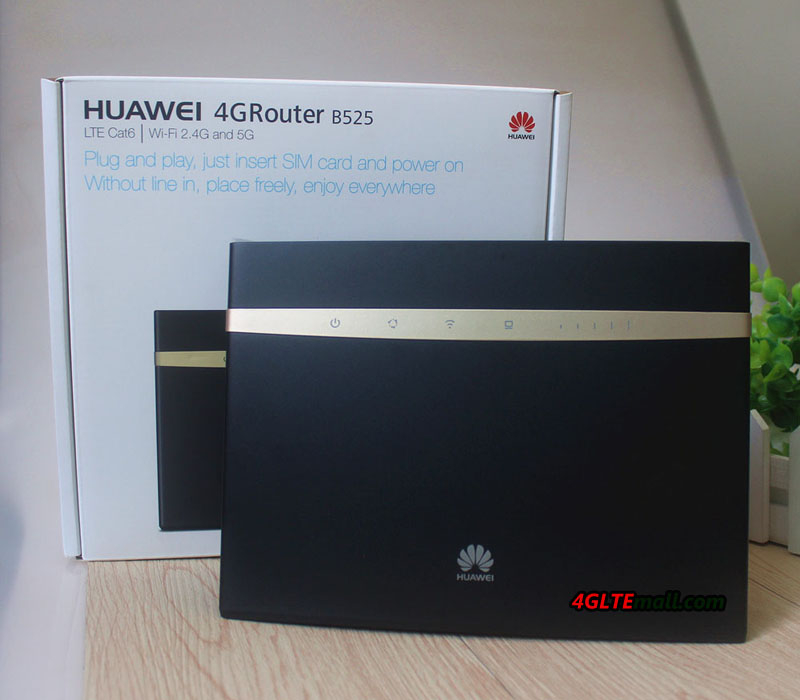
The dimensions of Huawei B525 router are 22.6cm long, 16.3cm high and 5.3cm thick. Its weight is 370 grams. These features mean it’s not a portable pocket WiFi router. It supports the 4G+ LTE category 6 on the bands: 1/3/7/8/20/32/38 (800/900/1500/1800/2100/2600MHz, TDD 2600MHz). No 700MHz(Band 28), so check first whether this router is right for your areas before you pick up, i.e. your network providers broadcasts on the above bands, which will make sure you can use this new router normally without any problem.
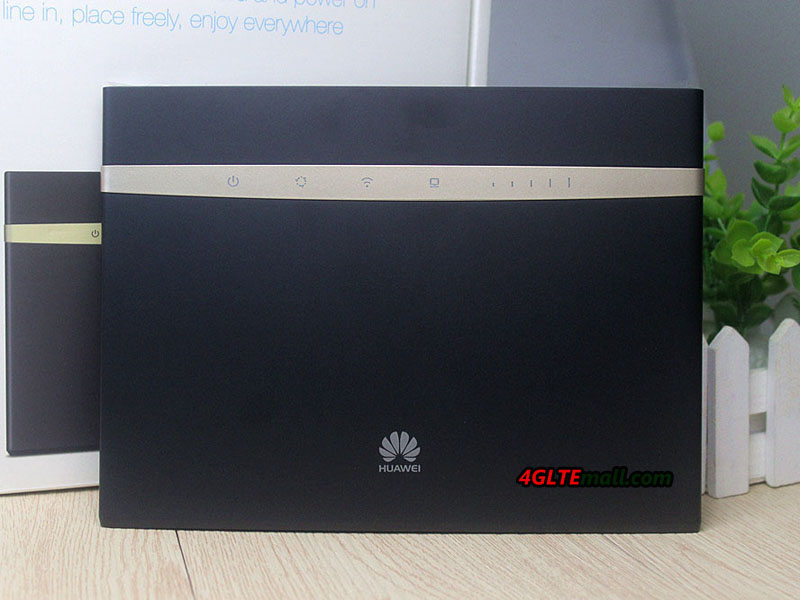
The proposed WIFI is a/b/g/n/ac on dual bands 2.4Ghz and 5Ghz and supports up to 64 devices connected over 250m range. (Warning: these are the data of the manufacturer in optimal conditions; the range of the wifi depends on the thickness of the walls and other parameters.) At the back of the wireless router, there are 4 ports for LAN, of which 1 port is for LAN/WAN. An external 4G/LTE antenna can be connected via the 2 SMA ports. We recommend below two antennas for Huawei B525 for indoor and outdoor use:
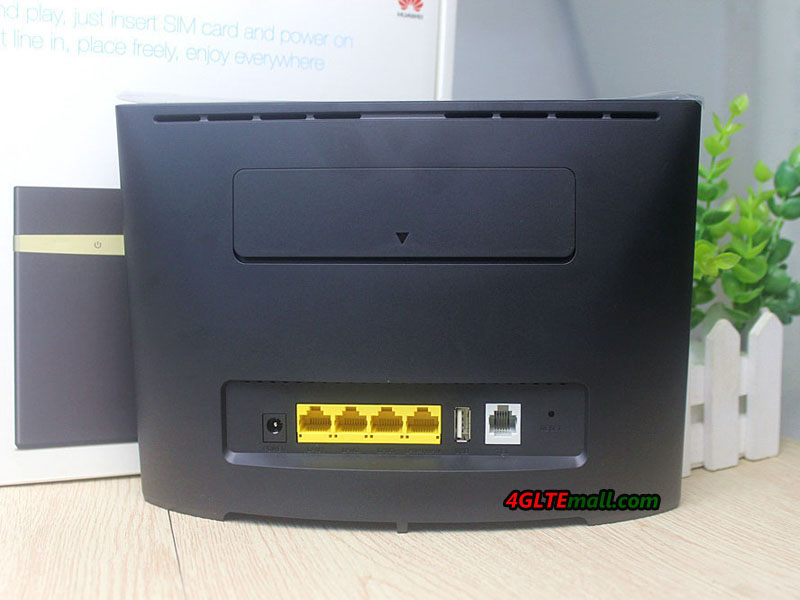
An RJ11 port allows you to connect a phone on it to make calls via the inserted SIM card. (Provided you do not force the router only on the 4G so that it can switch to other voice frequencies and that your SIM package is not only in data) A USB 2.0 port connects a hard drive or printer. The SIM card must be in the MICRO SIM format. It has a multilingual interface that you manage from your computer to configure your network quickly and easily (DHCP, VOIP, FIREWALL, consumption management etc) but is also compatible with the mobile application Huawei Mobile WiFi for a configuration via smartphones or Pads.
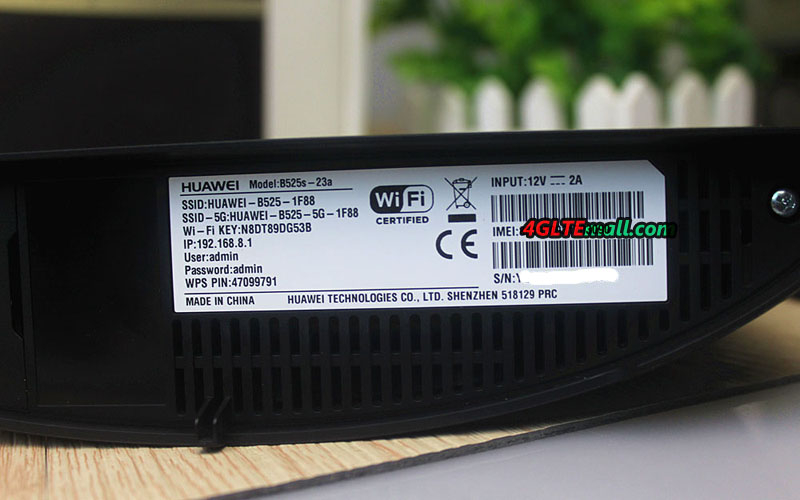
The Huawei B525s-23a Router 4G has an on/off button which is to turn it off when you do not use it. Likewise, a WPS button (to connect wifi easily) and 5 LEDs will allow you to know the intensity of your 4G reception. This HUAWEI B525s-23a is the latest flagship of the brand's 4G routing modems. At a relatively affordable price (compared to smatphones for example), you will be able to get rid of a deficient ADSL network and multiply your connection speed.
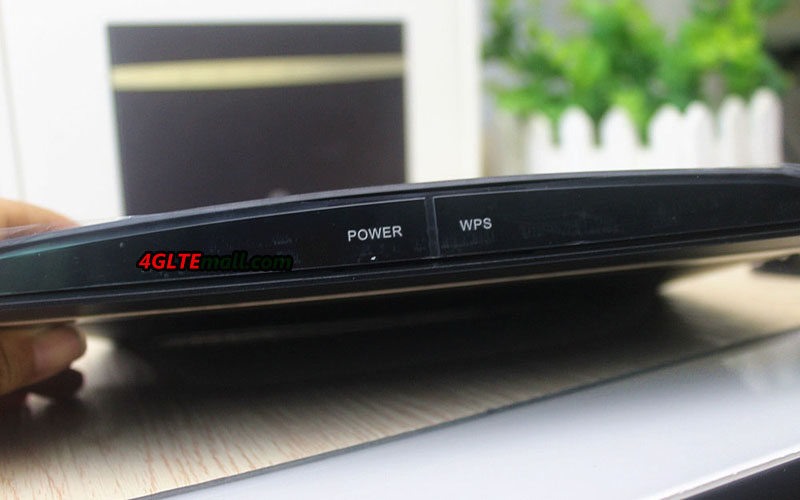
Regarding what’s the real difference between Huawei B525 router and Huawei E5186 router, we will check later. Actually, they are too similar technically, we don’t know why the new B525 is presented when the Huawei E5186s-22a is good enough for current LTE cat6 networks.
Saturday, October 14, 2017
Huawei Mate 10 -- Upcoming Top Smartphone
It will take a month until Huawei will present the Huawei Mate 10 and the Mate 10 Pro in Munich on October 16, but the discussions about the new top models are already in progress. At the moment, the web is all about the design of the new Mate models.
In the middle of the week, a video was put into the web, in which the Mate 10 is to be seen. The short clip, however, consists only of several CAD drawings (CAD: computer-aided design), which were made on the basis of the current reports on the Mate 10. Thus, the approximate look of the upcoming smartphone should have been captured, but some details might be different.
We can see a smartphone with a dual camera on the back, but not surrounded by the glass inlay we know from the Huawei Mate 9. In addition, the fingerprint sensor is located on the front, which seems odd. Because at the start of the Huawei P10, Huawei explained that the front sensor would only be used on models with a display diagonal up to about 5.5 inches. All larger devices, such as the Huawei Mate 10 with its 5.9 inch screen, should be equipped with a fingerprint sensor on the back.
The display of the rendering images to be seen in the video is surrounded by a comparatively wide border, considering that current top smartphones on the market are nearly borderless. Even the trend ratio of 18: 9 seems not to have been respected in the illustrated model. Would Huawei not equal on the Mate 10, or the video just misplayed a wrong picture?
Huawei Mate 10 Pro
The fact that the Mate 10 does not seem to follow the trend could also be due to Huawei's introduction of the Mate 10 Pro on October 16. This should correspond more to the current developments in the display. Because on previously unconfirmed live pictures, a smartphone with a nearly borderless screen and without fingerprint sensor on the front looks like Mate 10 pro. The space thus saved was invested in the display, which seems to have the well-known high-gloss format of 18: 9 or 17: 9. The display diagonal is to be slightly larger with 6.3 inches than with the Mate 10, the resolution is probably 1080 x 2160 pixels.
Whether one of the two new Huawei smartphones will have a curved display like the Huawei Mate 9 Pro, remains to be seen. It is already clear that Huawei's latest processor generation Kirin 970 will be used in the models. It is the first chip system of the manufacturer with a computing unit for neural networks and thus artificial intelligence. The Kirin 970 is manufactured in a very compact 10 nanometer process and, like the predecessor Kirin 960, has four Cortex A73 cores with a clock rate of up to 2.4 GHz and four A53 cores with up to 1.8 GHz. The graphics performance has been improved and an LTE Cat.18 modem is also included.
Friday, October 6, 2017
Huawei B618s-22d 4G LTE Router Highlight Features and Specifications
The Huawei B618s-22d is a high performance and ultra-fast router that combines LTE and Gigabit Ethernet connectivity to provide users with flexible and diverse data and voice services. By connecting to a Wi-Fi network or network cable, users can access Internet services and set up a local area network (LAN). LTE Category 11 (4G+) data transmission delivers up to 582 Mbps downstream and can be used by up to 64 users at the same time. The Huawei B618 supports 2.4 GHz and 5 GHz WiFI frequencies, providing maximum wireless data rates up to 1300 Mbps. It is therefore ideal for anyone who uses the Internet on multiple devices. The router is also equipped with Gigabit LAN ports.
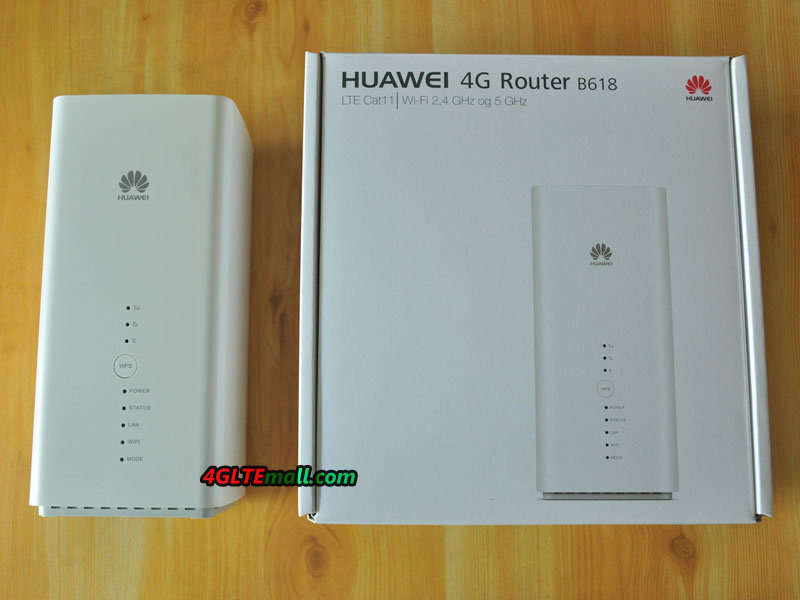
If the 3G or 4G signal is too weak at your location, you can amplify the signal by connecting external antennas - Huawei B618 has two LTE (TS9) antenna connectors. In places where there is no 4G network coverage, the router automatically switches back to 3G or 2G. A useful feature is the ability to make a WiFi connection by scanning the QR code. Other features of this 4G LTE-A router:
- Wireless AC (2.4 and 5 GHz)
- WiFi for 64 devices at a time
- 2 LAN ports (of which 1 can be used as WAN)
- Supports VoLTE, VoIP and CS
- 2 external antenna connectors (LTE)
- With the Huawei B618s-22d router you create a fast and stable Wi-Fi network for 64 devices concurrently at every location.
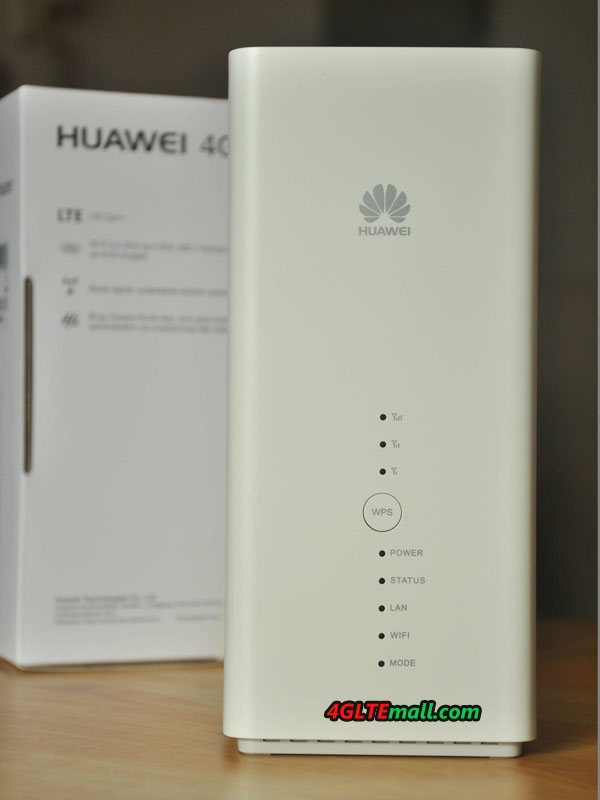
Huawei B618s-22d Highlight Features:
- Wireless AC: super fast WiFi
- The Huawei B618 supports Wireless AC at 2.4 GHz and 5 GHz, allowing maximum Wi-Fi speed of 1300 Mbps.
- WiFi for 64 devices at a time
- This 4G LTE-A router can connect 64 devices to the Internet simultaneously. It is perfect for everybody who requires mobile internet on multiple devices. Some examples: internet on a building site, in a temporary office or pop up store.
- 2 Gigabit LAN ports (1 of which can be used as WAN)
- The Huawei B618 features 2 Gigabit LAN ports, of which 1 can be used as a WAN port. On the LAN ports you can connect 2 devices that do not have a built-in WiFi receiver, such as a PC. The WAN port can be used if you want to use the internet via the landline.
- 2 external antenna connectors
- If the incoming 3G or 4G signal is limited at your location, you can improve the signal by connecting an external antenna. The Huawei B618 has 2 external antenna connectors (LTE).At locations where no 4G network coverage is available, the Huawei B618 router automatically switches back to a 3G or 2G connection.
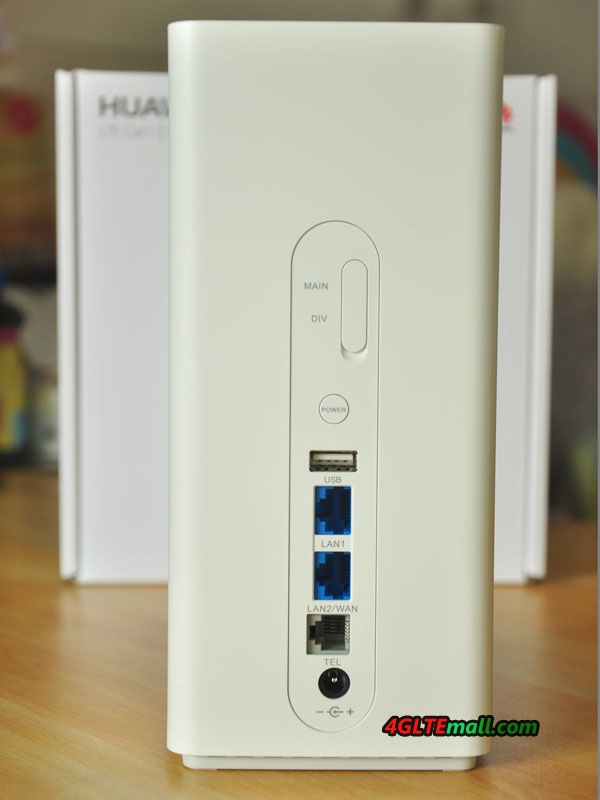
- WiFi connection via HiLink app
- To connect to a WiFi network, simply scan a QR code. The Huawei B618s-22d supports Huawei's mobile WiFi app. You can download this app here:In App store: Huawei HiLink (Mobile WiFi) app for B618 for Apple Google Play Store: Huawei HiLink (Mobile WiFi) app for B618 for Android
Cube shaped Huawei router
The Huawei B618 router has a cube shape. It looks a bit like the Huawei E5180 Cube, a Huawei router that is already available in many markets.
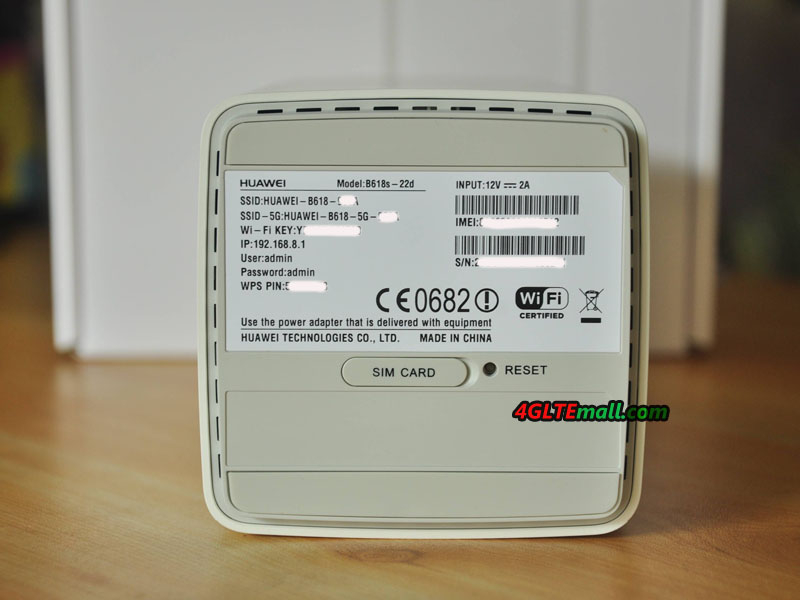
Huawei B618s-22d CAT11 4G LTE-A router Specifications | 600 Mbps | WiFi | 1 LAN | 1 LAN / WAN | VoIP
- Download speed: up to 600 Mbps (CAT9 / CAT11)
- Upload speed: up to 50 Mbps
- 4G: LTE FDD 1/3/7/8/20 (800/900/1800/2100/2600MHz)
- 3G: HSPA+ 900/2100 MHz
- Wireless IEEE 802.11 a/b/g/n/ac (2.4 and 5 GHz)
- Up to 64 connections at a time
- 2 x 10/100/1000 Mbps LAN ports, including 1 WAN
- 1 x USB 2.0 connector
- 2 x external antenna connectors for LTE (TS-9)
- RJ11 connection Supports VoLTE (customizable function), VoIP and CS
- WPS button (WiFi protected setup)
- Reset button
- Supports IP versions 6 and 4
- Dimensions: 95 x 95 x 208 mm
- Weight: 700 grams
- SIM card slot: micro SIM card
- Simlock free
Additional information Software:
- Supports ARP network protocol.
- Supports ICMP network layer protocol.
- Supports DNS Protocol.
- Protocols: DHCP, DNS RELAY and NAT.
- VPN client: L2TP.
- SMS: Writing / sending / receiving (also long SMS) . CS via UMTS and GSM network. Voice over LTE (VoLTE)
- Possible to make phone calls over LTE network
- Possibility to connect 64 users simultaneously via WiFi
- Gigabit Ethernet: IEEE 802.3 / 802.3u
- Supports IPv4 / IPv6 protocol
- HUAWEI Mobile WiFi App compatible
- Security services provide immediate protection by blocking potential threats and hacking attempts.
- HOTA updates (Huawei Handset Over-the-Air and Online Upgrade)
- System updates as soon as the latest version of Firewall software is available : Enable / Disable
- MAC LAN Filtering
- Filtering IP addresses LAN
- URL filtering
- DMZ host
- UPnP protocol
- supports Application Level Gateway ALG) WLAN:
- broadcast and hide SSID
- WPS 2.0
- encryption: Open, WEP, WPA2-PSK, WPA / WPA2-PSK; AES; TKIP / AES
- possibility to define black and white lists of MAC addresses
Friday, September 15, 2017
Huawei Presents HiSilicon Kirin 970 LTE Cat18 Chipset
Huawei presented a new chipset for smartphones at the IFA with the HiSilicon Kirin 970. The Kirin 970 includes a processor, a graphics unit and a mobile radio modem. Especially in the modem, there is some progress compared to the predecessor - the Kirin 960. The Kirin 970 LTE Cat18 supports up to 1.2 GBit/s in the download. In addition, the dual SIM operation supports LTE on both SIM cards at the same time. The Kirin 970 chipset will be used in the Huawei Mate 10 smartphone, which will be presented in mid-October in Munich.
Modern LTE modem
The HiSilicon Kirin 970 is next to the first modem Qualcomm Snapdragon X20, which supports LTE category 18 of the downlink . Thus, speeds of up to 1.2 gigabits per second are possible in a correspondingly developed mobile radio network.
To achieve such high speeds, different 4.5G/LTE Advanced Pro technologies are combined. The Kirin 970 supports, for example, the 4 × 4 MIMO antenna technology and the 256QAM modulation technology. Furthermore, a frequency spectrum of up to 100 MHz can be bundled thanks to the 5CC CA (= five-factor carrier aggregation ).
There is also news about Dual SIM. So far, no smartphone was able to use both SIM slots on LTE at the same time. One of the two cards was therefore always limited to 2G / 3G usage, which is particularly annoying if only an LTE network is available. The Kirin 970 can now also run parallel in the LTE network on both SIM cards, so you can, for example, use the first SIM card to surf via LTE and use the VoLTE in the LTE network via the second card.
Processor, graphics and AI
The HiSilicon Kirin 970 is produced in the 10nm process and is to enable a better battery life than the previous model. An octa-core CPU and a 12-core GPU are integrated in addition to the described modem. The chipset should be particularly suitable for artificial intelligence applications (AI) and be faster and 50x more efficient than a classic quad-core CPU without a AI component through a combination of on-device AI and Cloud AI 25x.
Thursday, September 14, 2017
HMD Global Presents New Nokia 8 Android Smartphone
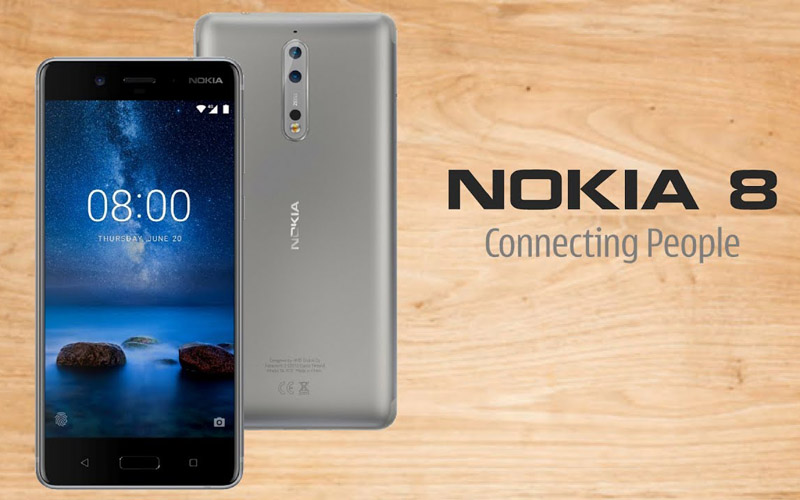
Monoblock design and lots of performance
The Nokia 8 comes in a "monoblock design" with capacitive buttons according to the HMD Global and has been designed in such a way that the device not only looks good and is well in the hand, but also dissipates heat optimally. The display is 5.3 inches in size and has a very high resolution of 2560 x 1440 pixels (WQHD). With 700nts, it should also be very bright. The integrated battery is 3090mAh strong and not changeable by the user. It has the Qualcomm QuickCharge 3.0 quick-release feature.
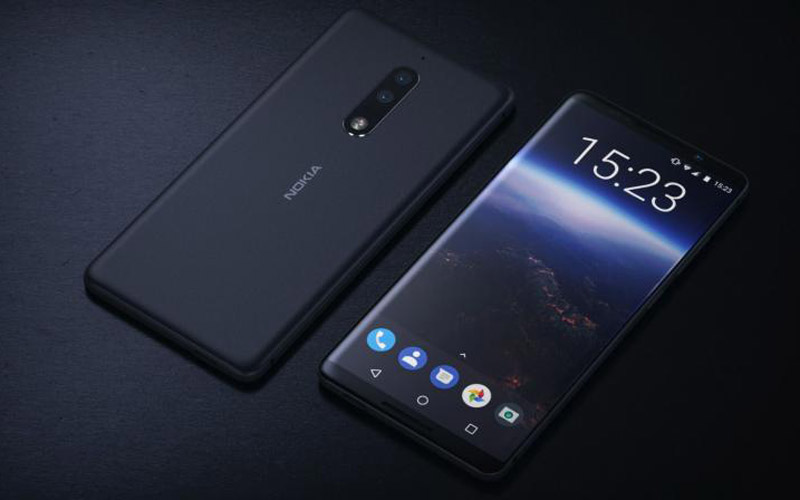
The integrated memory is 64 GB in size and can be extended by up to 256 GB via MicroSD memory card. The memory is 4 GB. With the wireless interfaces, the Nokia 8 is very up-to-date, including support of Bluetooth 5.0 and WLAN 802.11ac. The USB Type C interface is especially fast thanks to USB 3.0 and 5Gbps support. Unlike some other high-end smartphones, a 3.5mm headphone jack is also on board.
Zeiss camera
The Nokia 8 is equipped with a dual camera system with Zeiss optics on the back. Both sensors have a resolution of 13 megapixels, the primary sensor takes up color and is equipped with an optical image stabilization, the secondary sensor takes pictures monochrome. The aperture is f2.0. There is an infrared distance meter as well as a dual-tone LED flash. The camera on the front comes with almost the same data (13 megapixels, f2.0), but has no optical image stabilization. The Nokia 8 has a special feature integrated; here the image of the front and the rear camera is simultaneously recorded. The feature can even be used for streaming networks such as Facebook and YouTube.
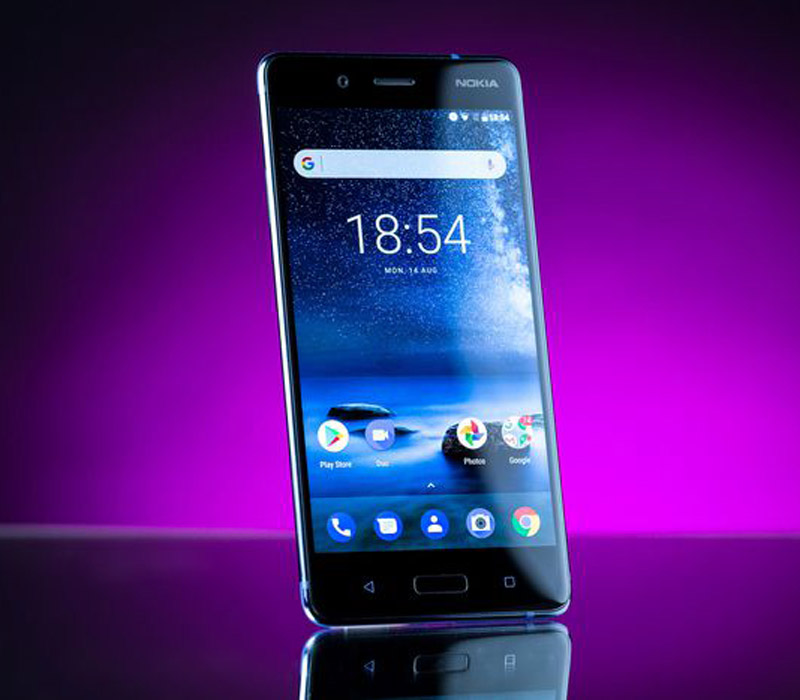
Software: "Pure Android"
HMD Global is working as an operating system to use a current and almost unchanged version of Android. Pre-installed Android 7.1.1, the manufacturer promises monthly security updates. Through the pure Android, the device is supposed to offer a better user experience than comparable high-end models from other manufacturers. This could be an important purchase point for some users, as many other manufacturers such as Samsung and Huawei often criticize the overloaded and advertising apps blocked user interface. Disadvantage of "Pure Android" might be that certain functions are not present through the pre-installed user interface. But it is always an option for Android.
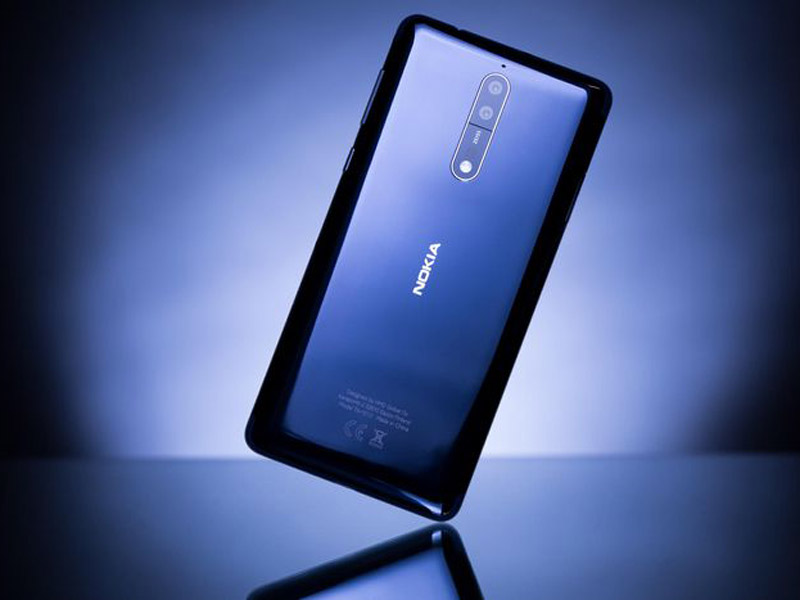
Availability
The Nokia 8 is to be offered from September 2017 in the colors Polished Blue, Polished Copper, Tempered Blue. In addition to a single SIM version, a dual SIM version of the Nokia 8 is also available, but it can be assumed that HMD Global will market the dual SIM version only via the free trade and not through providers and network operators.
Tuesday, September 5, 2017
Samsung Galaxy Note 8 LTE Cat16 Smartphone Released
Samsung has introduced the Galaxy Note 8 in New York few days ago. The smartphone is equipped with a modern LTE Cat16 modem and allows speeds of up to 1 Gbit/s in appropriately equipped mobile networks. In addition to the standard version, a dual SIM version is also officially available in some areas, which is in the note series for the first time. The other technology includes a 6.3 inch display, a dual camera and 64GB internal memory.
Case with Infinity Display
The Galaxy Note 8 looks similar to the Galaxy S8 Plus, it is only slightly more angular than the sister model. The display is 6.3 inches in size, has an aspect ratio of 18.5: 9 and is rounded off to the sides, which is already known from the Galaxy S8. The resolution is 2960 x 1440 pixels (QHD+). Since the edges on the sides as well as the top and bottom were kept as narrow as possible, Samsung applies the display as "Infinity Display". An important difference to the Galaxy S series is, of course, the S-Pen input pen, which is simply part of the Samsung Galaxy Note series.
The case of the Samsung Galaxy Note 8 is dust and water proof according to IP68. With 162.5 x 74.8 x 8.6 mm, the Galaxy Note 8 is quite large, but still makes a slim figure compared to other devices from the 6-inch category. The weight is 195 grams.
Dual camera system
A further novelty compared to its predecessor Galaxy Note 7 and the Galaxy S8 is the dual camera. The Note 8 has two camera sensors each with 12 megapixel resolution, one with wide-angle lens and one with a kind of tele-lens, so that like the Apple iPhone 7 Plus, a certain zoom can be achieved. The aperture of the wide-angle lens is f1.7, the telephoto lens has a diaphragm of f2.4. It is worth mentioning that both sensors have optical image stabilization (OIS).
Fast processor with Android 7.1.1
As a chipset, a Samsung Exynos 8895 is used in the European version of the Samsung Galaxy Note 8, the memory is 6 GB. About 51 GB of the internal 64 GB memory ex factory for the user are available, a memory extension via MicroSD memory card is naturally possible.
In addition to Gigabit LTE of the category 16, of course, all other current radio technologies are on board, just as one expects it from an expensive high-end smartphone. The Galaxy Note 8 supports WLAN 802.11ac with MU-MIMO antenna technology, it can support VoLTE (voice over LTE) and WLAN calls and it supports Bluetooth 5.0. Android 7.1.1 is used as the operating system. The battery of the Galaxy Note 8 is 3.300 mAh and can be charged both via USB Type C cable as well as wireless. A quick-charge mechanism is supported for both cordless charging and normal charging.
Dual-SIM Available
The Samsung Galaxy Note 8 comes in September. While only a single SIM variant will be available in the free trade for network operators, a dual SIM version can be pre-ordered in the Samsung Online Shop. Currently, the price of Samsung Galaxy Note 8 is at high side. If you can wait a few months, you will be able to benefit from a significant drop in prices.
Sunday, September 3, 2017
Huawei Nova 2 General Review
Huawei will soon be offering a new smartphone Huawei Nova 2 with dual camera in Europe. The successor of the Huawei Nova comes in three different colors and with dual-SIM function on the market, the internal memory is very generously rated 64 GB for a middle class smartphone. A highlight is also the front camera of the Huawei Nova 2, which has a resolution of 20 megapixels and is supposed to provide a very good picture quality.
The Huawei Nova 2 looks quite similar to the predecessor, whose display is quite compact with 5 inches in the diagonal for today's conditions. The resolution is 1920 x 1080 pixels (Full HD). As an operating system, Android is used in version 7.0 nougat, as the user interface is preinstalled with Huawei typical EMUI version 5.1.
The battery of the Huawei Nova 2 is 2.950 mAh strong, with a body thickness of only 6.9 millimeters, which is quite remarkable. Also remarkable is the internal memory with 64 GB, which is also expandable via MicroSD memory card, unless one decides for a dual SIM usage. The nova 2 has a combination slot, ie you can use either two SIM cards or one SIM and one memory card. As a successor, a HiSilicon Kirin 659 chipset (Octa-Core) is used, the memory is 4 GB.
On the back, the two camera lenses are visible - the predecessor came with a single sensor. The resolution is 12 megapixels, the aperture is f1.8. The front camera offers 20 megapixels even a higher resolution, the aperture is with f2.0 but slightly worse, ie there is less light on the sensor. For Selfies, the Huawei Nova 2 should be very suitable.
The Huawei Nova 2 is now available in Asia market. Some online retailers offer the device at different prices. The Asia version Huawei Nova 2 can be used with the network provides in Europe. As we know, the Huawei Nova 2 in China market is not customized by any mobile operators, so the nova 2 could be used in other network providers’ SIM cards. With the dual-SIM option, you may have more options to do the use the sim card and memory card. There is of course customized model for Huawei Nova 2, so if you would buy the Huawei Nova 2, make sure you choose the pure version with any customization.
Here now, the Huawei Nova 2 Plus is also available as the follower. With higher specifications and larger screen, Huawei Nova 2 Plus becomes a good competitor to Huawei Nova 2. If you want to know more about Huawei Nova 2 and Nova 2 Plus, welcome to check www.4gltemall.com.
Wednesday, August 23, 2017
Difference between Huawei E5786 and E5885
It has been months since the Huawei Mobile WiFi Pro 2 was released to market and we had introduced this new 4G router in details. If you had used the Huawei first LTE cat6 mobile router, you may know the Huawei E5786 4G hotspot. Today, we will have a look at what’s the difference between the Huawei E5885 and E5786.
Appearance
As we introduced before, the Huawei E5885(available model called E5885Ls-93a) follows the design of the Huawei E5770 Mobile WiFi Pro. On the front upper side, there is only a small screen to show connection information. The upper side is made of plastic but looks cool, the below part is made of high quality leather, which makes it feels very good in hand. Huawei logo is on the leather. The whole body of Huawei E5786 is made of plastic, but it also feels good and slippery. The Huawei logo and power button are located at each side of the screen of E5786.
On the back of Huawei E5786, there is Huawei logo with “mobile WiFi”. The Huawei E5885 back has Huawei logo and words “CAT6/6400mAh/23Wh” which indicates the mobile router is a LTE Category 6 mobile hotspot with 6400mAh battery for 23 hours working time.
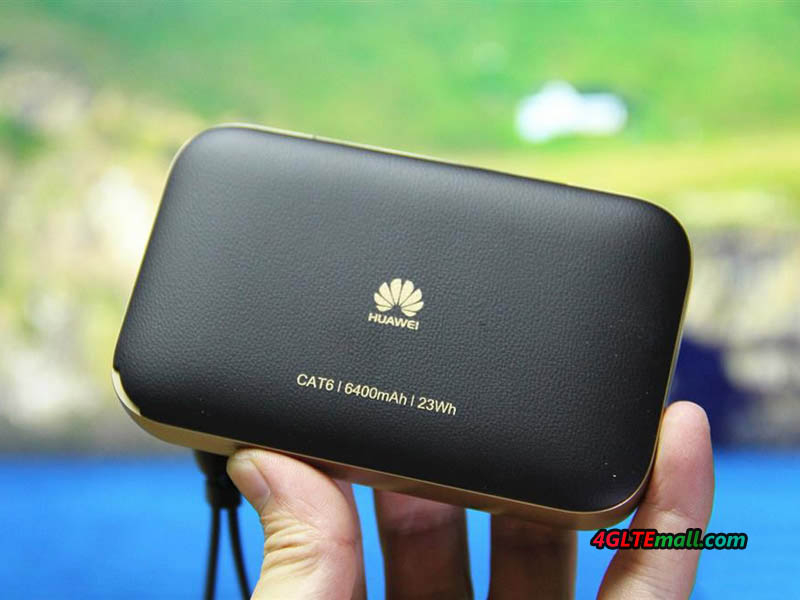
The Huawei E5885 power and WPS button are located at the top edge. Between them, the Output and input USB ports, and the Ethernet port are covered by a small cap. The Huawei E5786 has a menu button on the top edge and USB port is at the opposite side.
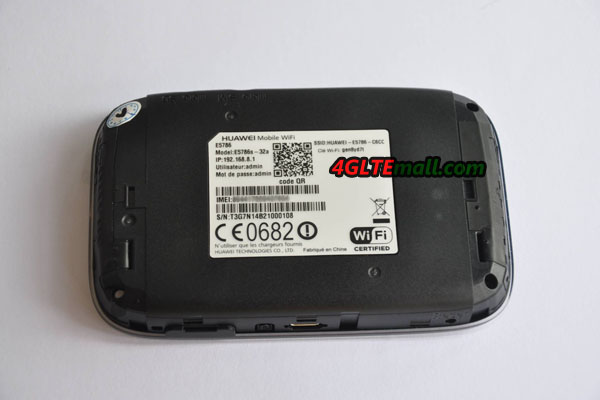
The back cover of Huawei E5885 and E5786 can be opened. In the Huawei E5885, we can see the SIM card slot and Micro SD card slot are located, where there is a reset button in red. Below is a label with the model number, IMEI number, SSID, WiFi key, IP address, user name and password. One QR code is also included so as to scan and connect. The Huawei E5786 also has the SIM card and MicroSD card slot lying together. What’s more, two TS-9 connectors for external antennas are covered by a cap. However, there is no antenna connector in Huawei E5885.
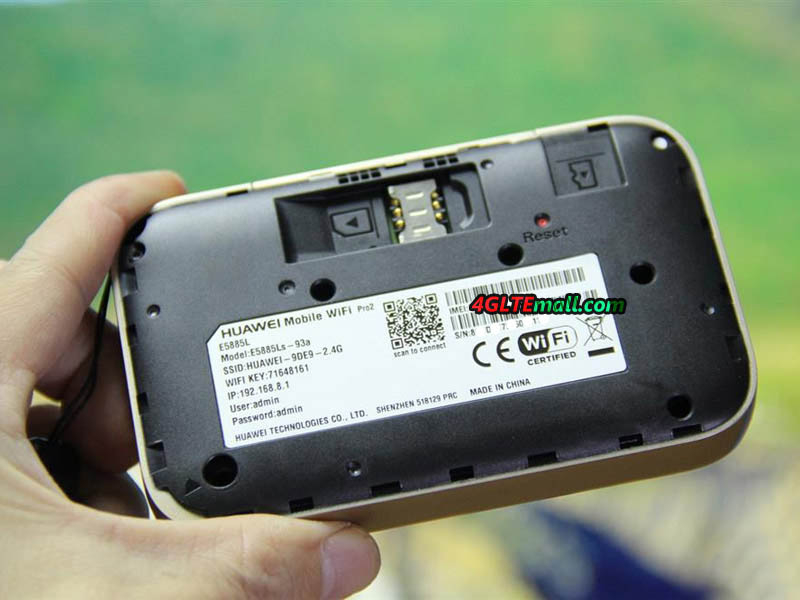
Technical Specifications
The Huawei E5885 and E5786 are both LTE cat6 mobile hotspot which could support LTE download speed up to 300Mbps and upload speed to 50Mbps. They both provide variants for different carriers and various LTE frequency bands. The WLAN standard supports latest 802.11ac with dual band. Huawei E5786 could support up to 10 wireless devices to access internet through WiFi while the latest Huawei E5885 supports maximum up to 32 users. They both use the Micro SIM card. The Huawei E5885 provides one more connection by Ethernet cable while Huawei E5786 can only keep connected with SIM card.
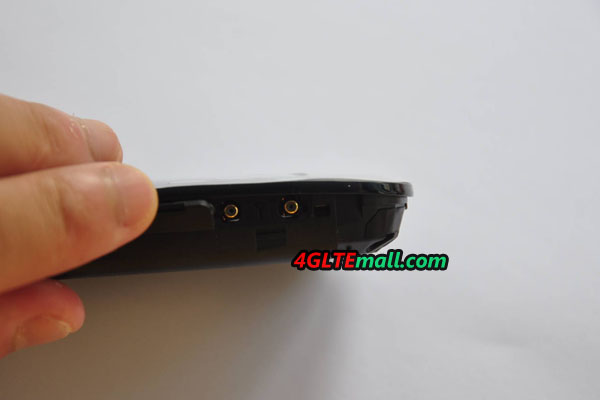
Battery
The back cover of the Huawei E5786 and E5885 can be opened, but the battery of them can’t be removed for change. The battery of Huawei E5786 is 3000mAh, which can keep working for 10 hours. While the Huawei E5885 has larger battery of 6400mAh, which would provide 23 hours working time. They both can charge other electric devices as a mobile power bank. However, the Huawei E5786 needs an accessory call AF18 adapter to make this function true. The Huawei E5885 can directly charge other devices without any problem.
What’s more, the Huawei E5885 has a special USB cable with the device. The USB cable can be used as a lifting rope, which is really a smart and practical design. The Huawei E5786 uses the normal USB 2.0 cable for charging.
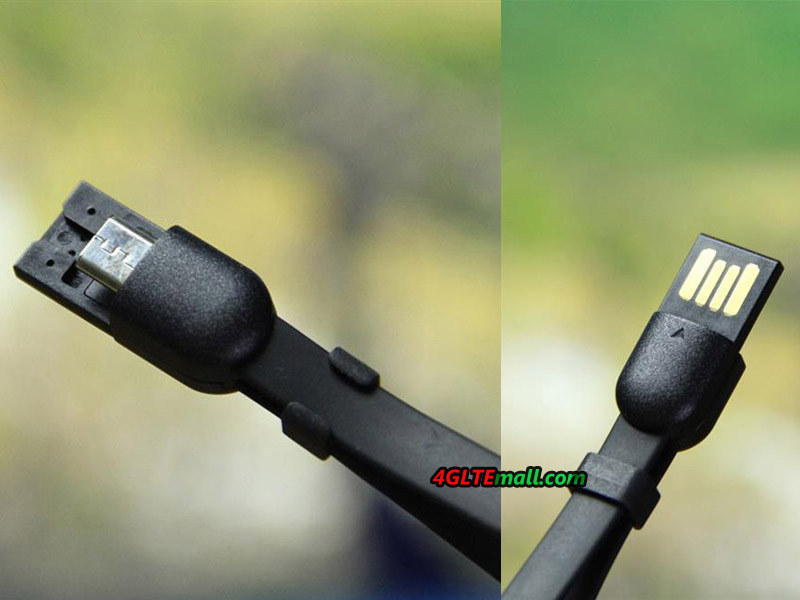
From the comparison, we think there is no doubt that the latest Huawei E5885 is much better than the E5786, ont only on the design but also the practical functions. So if you are looking for a wonderful mobile hotspot, we think Huawei E5885 is good to recommend.
